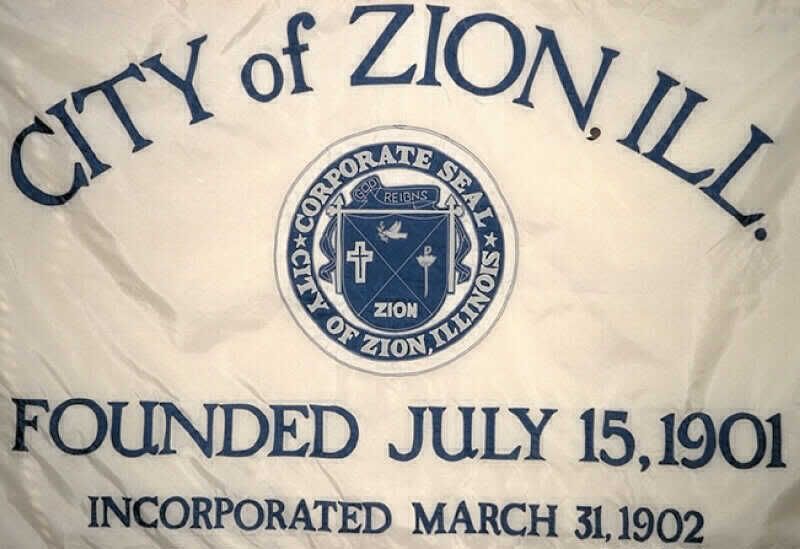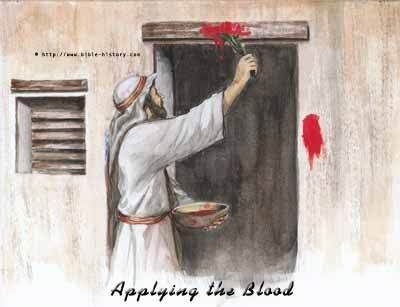 One of the grand themes of the the Book of Mormon is focused on the conversion process of the Lamanites and the the creation of a pure "Zion" people. Wise men have long sought for the creation of a perfect society. Many puritin pilgrams and other christians immigrated to the New World in hopes of establishing just such a Utopian or Zion society. However, these christian immigrants as well as many prophets in the scriptures were left to "mourn out their days" because they felt like "strangers, and wanderes on Earth" (Jacob 7: 26, Alma 26: 36, 1 Chr. 29: 15, Ps. 39: 12, Heb. 11: 13, D&C 45: 13).
One of the grand themes of the the Book of Mormon is focused on the conversion process of the Lamanites and the the creation of a pure "Zion" people. Wise men have long sought for the creation of a perfect society. Many puritin pilgrams and other christians immigrated to the New World in hopes of establishing just such a Utopian or Zion society. However, these christian immigrants as well as many prophets in the scriptures were left to "mourn out their days" because they felt like "strangers, and wanderes on Earth" (Jacob 7: 26, Alma 26: 36, 1 Chr. 29: 15, Ps. 39: 12, Heb. 11: 13, D&C 45: 13).
The Bible hints at several instances where the perfect, united order, or Zion society was realized. The first was Enoch who was the High Priest over the original city of Zion. He and the city were able to be of "one heart and mind" and arrive at a state of perfection such that Enoch and the entire city was taken up into heaven; translated like the prophet Elijiah. Melchesidek, King and High Priest of Salem, was said to rule over a wicked city who repented and became a righteous city known ever after as "The City of Peace."
Moses tried to establish a perfect order among the Israelites. God desired to again establish his everlasting coventant with Israel declaring, "And ye shall be unto me a kingdom of priests, and an holy nation" (Ex. 19: 6), but the people were fearful . . . "and stood afar off. And they said unto Moses, Speak thou with us, and we will hear: but let not God speak with us, lest we die (Ex. 20: 19). So, God established a prepatory law which would prepare them to recieve the higher law at Christ's coming. After Christ's ascention, the higher law and everlasting covenant was revealed and early christians were said to have lived ". . . of one heart and of one soul: neither said any of them that ought of the things which he possessed was his own; but they had all things common" (Acts 4: 32). However, the perfect order and everlasting covenant did not endure the persecutions and the coming apostasy (Amos 8: 11, Acts 3: 21, 2 Thes. 2: 3, Acts 20: 29, Rev. 12: 6, 14, Dan. 2: 44-45). If you disagree based on John 15: 16 then where are their christians who live with all things in common other than the Amish?
The Book of Mormon prophets also saught to establish a united order. Lehi, after surviving a long journey through the desert, came to a fertile seashore which they named Boutiful. However, the oasis was not big enough to establish a righteous nation, so God commanded Nephi to build a ship which would bring them across the ocean to the "promied land." After arriving in the Americas, Brothers Laman and Lemuel and several of the sons of Ishmael rebelled against the Lord, forcing the family to split into two groups known as the Nephites and Lamanites.
The Nephites tried despertly to restore the Lamanites to the truth. Mormon comment on their desires and prayers to reclaim the lamanites: "And my prayer to God is concerning my brethren, that they may once again come to the knowledge of God, yea, the redemption of Christ; that they may once again be a delightsome people" (W of M 1: 8). Enos comments on their efforts to reclaim the Lamianites but details their fall into great wickedness and superstition:
"And I bear record that the people of Nephi did seek diligently to restore the Lamanites unto the true faith in God. But our labors were vain; their hatred was fixed, and they were led by their evil nature that they became wild, and ferocious, and a blood-thirsty people, full of idolatry and filthiness; feeding upon beasts of prey; dwelling in tents, and wandering about in the wilderness with a short skin girdle about their loins and their heads shaven; and their skill was in the bow, and in the cimeter, and the ax. And many of them did eat nothing save it was raw meat; and they were continually seeking to destroy us" (Enos 1: 20).
Part of the difficulty in converting and reclaiming the Lamanites to the truth was their oral tradition. The Book of Mormon records:
"They were a wild, and ferocious, and a blood-thirsty people, believing in the tradition of their fathers, which is this—Believing that they were driven out of the land of Jerusalem because of the iniquities of their fathers, and that they were wronged in the wilderness by their brethren, and they were also wronged while crossing the sea; And again, that they were wronged while in the land of their first inheritance, after they had crossed the sea, and all this because that Nephi was more faithful in keeping the commandments of the Lord—therefore he was favored of the Lord, for the Lord heard his prayers and answered them, and he took the lead of their journey in the wilderness. And his brethren were wroth with him because they understood not the dealings of the Lord; they were also wroth with him upon the waters because they hardened their hearts against the Lord. And again, they were wroth with him when they had arrived in the promised land, because they said that he had taken the ruling of the people out of their hands; and they sought to kill him. And again, they were wroth with him because he departed into the wilderness as the Lord had commanded him, and took the records which were engraven on the plates of brass, for they said that he robbed them. And thus they have taught their children that they should hate them, and that they should murder them, and that they should rob and plunder them, and do all they could to destroy them; therefore they have an eternal hatred towards the children of Nephi" (Mosiah 10: 15 (12-17)).
In the Book of Mormon, there were 2 movements that prepared the Lamanites to recieve and accept the gospel of Jesus Christ and reject their false oral traditions. The first was literacy and the second was industry and economy. You will remember that Amulon and the wicked priests of King Noah were set up as teachers among the Lamanites. The result proved to be a revolutionary shift from the how the lamanites were described earlier in the Book of Mormon:
"And he appointed teachers of the brethren of Amulon in every land which was possessed by his people; and thus the language of Nephi began to be taught among all the people of the Lamanites. And they were a people friendly one with another; nevertheless they knew not God; neither did the brethren of Amulon teach them anything concerning the Lord their God, neither the law of Moses; nor did they teach them the words of Abinadi; But they taught them that they should keep their record, and that they might write one to another. And thus the Lamanites began to increase in riches, and began to trade one with another and wax great, and began to be a cunning and a wise people, as to the wisdom of the world, yea, a very cunning people, delighting in all manner of wickedness and plunder, except it were among their own brethren" (Mosiah 24: 1, 4).
After teaching the Lamanites bacame literate, and industrialized, they were then recepive to the word of God. But as the Lamanites were converted to the truth, the Nephites began to reject it:
"For behold, the Lord had blessed them so long with the riches of the world that they had not been stirred up to anger, to wars, nor to bloodshed; therefore they began to set their hearts upon their riches; yea, they began to seek to get gain that they might be lifted up one above another; therefore they began to commit secret murders, and to rob and to plunder, that they might get gain. . . And thus we see that the Nephites did begin to dwindle in unbelief, and grow in wickedness and abominations, while the Lamanites began to grow exceedingly in the knowledge of their God; yea, they did begin to keep his statutes and commandments, and to walk in truth and uprightness before him. And thus we see that the Spirit of the Lord began to withdraw from the Nephites, because of the wickedness and the hardness of their hearts. And thus we see that the Lord began to pour out his Spirit upon the Lamanites, because of their easiness and willingness to believe in his words" (Hel. 6: 17, 34-36).
The Lamanites who were converted to the truth were so valiant in their faith that the Book of Mormon says of them: "a few of the Lamanites who were converted unto the true faith; and they would not depart from it, for they were firm, and steadfast, and immovable, willing with all diligence to keep the commandments of the Lord" (3 Ne. 6: 14). What a stark contrast to the "bloodthirsty" Lamanites described at the beginning of the Book of Mormon.
After Christ's apearance in America, there was a perfect, Zion society established on the American continent which lasted nearly 3 generations. The Book of Mormon says that everyone was converted to the Lord:
"And they had all things common among them; therefore there were not rich and poor, bond and free, but they were all made free, and partakers of the heavenly gift. And now, behold, it came to pass that the people of Nephi did wax strong, and did multiply exceedingly fast, and became an exceedingly fair and delightsome people. . . And it came to pass that there was no contention in the land, because of the love of God which did dwell in the hearts of the people. And there were no envyings, nor strifes, nor tumults, nor whoredoms, nor lyings, nor murders, nor any manner of lasciviousness; and surely there could not be a happier people among all the people who had been created by the hand of God. There were no robbers, nor murderers, neither were there Lamanites, nor any manner of -ites; but they were in one, the children of Christ, and heirs to the kingdom of God" (4 Ne. 1: 3,10,15-17).
However, the Book of Mormon is a record of 2 fallen civilizations. The Nephites and Lamanites again reject the truth. Mormon witnesses the fall of his people comments to his son Moroni:
". . . Behold, the pride of this nation, or the people of the Nephites, hath proven their destruction except they should repent. Pray for them, my son, that repentance may come unto them. But behold, I fear lest the Spirit hath ceased striving with them; and in this part of the land they are also seeking to put down all power and authority which cometh from God; and they are denying the Holy Ghost. . . . I fear lest the Spirit of the Lord hath ceased striving with them. For so exceedingly do they anger that it seemeth me that they have no fear of death; and they have lost their love, one towards another; and they thirst after blood and revenge continually. . . And if they perish it will be like unto the Jaredites, because of the wilfulness of their hearts, seeking for blood and revenge" (Moro. 8: 27-28, Moro. 9: 3-4, 23).
So, what does this have to do with Foreign Policy? Well, there are some who would have you believe that it is arrogant for the West to attempt to industrialize and democratize the 3rd World. They refer to it as Imperialistic. They say things like, "You can't just expect those people over there to accept democracy and that it is not culturally sensitive." They seem to be thinking that those in the middle east like to be oppressed and like they wouldnt know what to do with democracy if they had it.
Also, with this global warming fraud. The movement is discouraging the industrialization of the 3rd World. Such industrializatoin would prove to close the economic inequality gap and end the real war which is not an East-West conflict but a North-South or a Rich-Poor conflict (Zinni, Battle Ready). Truth is that the majority of people want freedom and want opportunity. And it should not be considered imperialistic to make freedom and opportunity availiable to all mankind. That said, we would help ourselves if we did not export sexualized pop-culture and media , and dishonest, cut-throat business practices along with it.
Some people like to travel the world and collect trinkets to put on their walls and shelves. Although beautiful in their own way, they are also a reminder of the impoverished and opressive conditions that most people who live on this planet live under. I take the stand to say that, with all respect to cultural and religious beliefs, all people have the right to be free and to have the opportunity to develop their god-given talents. There is nothing about culture or religion that values oppression, immorality, poverty, and inequality. So, I support any action that seeks to make the blessings and rights of liberty and opportunity availible to more of the human family. And that such actions should not be considered Evil or Imperialistic on the whole but purely charitable.
















